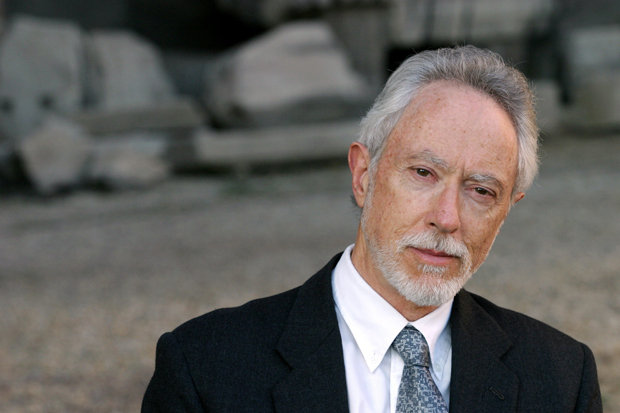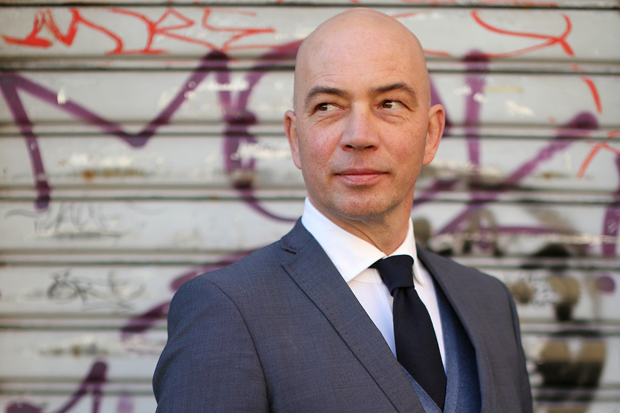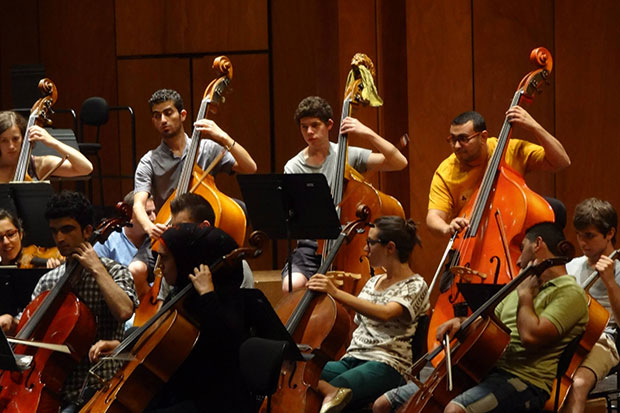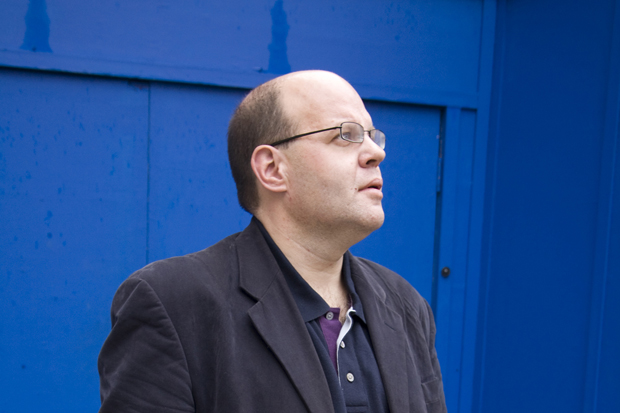The Schooldays of Jesus is not, as it happens, about the schooldays of Jesus. It is the Man Booker-nominated sequel to The Childhood of Jesus (which, you guessed it, did not once refer to the childhood of Jesus either). J.M. Coetzee is now so much part of the literary pantheon, so liable to be rewarded by the critical classes and the academic industry surrounding him, that he no longer needs to worry about basics such as having a title that makes sense.
He should still worry, one feels, about telling a story worth following. Like its predecessor, his new novel is set in a nameless Spanish-speaking province; a Kafkaesque, ‘featureless’ and ‘dreary’ place. It is pre-technological in the sense that people have to use telephone boxes and can only listen to one of two radio stations (nobody stops to order a chai latte, for example,
or Facebook their friends), but otherwise timeless.
We view the world through the eyes of Simón, a ‘dry soul, deficient in passion’, ‘the exemplary stepfather, the man of reason, the dullard’, ‘the stupid one, the blind one, the danceless one’. He is not great fun to be around, as you can see. He is only a stepfather in the sense that he looks after the ingenuous young boy Davíd, sharing that responsibility with Inés, a woman for whom he has no affection (‘they have nothing to say to each other; they have next to nothing in common’).
In the town of Estrella (meaning ‘star’, which could be significant; although the other named town is ‘Novilla’, meaning female cow), they try to find an appropriate school for Davíd. Three are available: the Singing Academy; the Dance Academy (‘devoted to the training of the soul through music and dance’); and the Atom School (‘they teach about atoms. They watch atoms through a microscope, doing whatever it is that atoms do’).
Davíd is sent to the Dance Academy, which espouses an incomprehensible — to Simón and, for that matter, to me — philosophy about numbers (‘to bring the numbers down from where they reside, to allow them to manifest themselves in our midst, to give them body, we rely on the dance’), and is run by Ana Magdalena, who has ‘perfect features, perfect skin, perfect figure, perfect bearing’, but no eyebrows. Her fate is to be strangled by her janitor lover, Dmitri, and much of the novel is taken up with the aftermath of that crime.
Along the way, we are treated to the full range of Coetzean philosophical preoccupations, often set up in the form of rather weighty dualities: man and animal; child and adult; body and soul; ‘love and hate; you can’t have the one without the other. Like salt and pepper. Like black and white.’ The novel also investigates the thorny concepts of truth, justice and criminal responsibility. (‘What if we were not ourselves, or not fully ourselves, when the action in question was performed? Was the action then ours?’)
It does so at little depth and with little effect. Mostly this is because ideas are approached through an interminable array of questions, which make you feel that you are trapped in a car with a querulous child: ‘Why did you do it, Dmitri? Why? Why? Why?’; ‘Why? Why is it she alone before whom he feels his nakedness?’; ‘Who is he? Who are you? Indeed, who am I?’
Simón patiently tries to answer questions about his own life, and the novel has to follow his dogged, workaday approach; indeed a more accurate title might have been ‘The Sermons of Simón’. He says things like ‘charity is other people’s goodness, other people’s kindness’ or ‘inner qualities are qualities like kindness and honesty and a sense of justice’. And Coetzee’s fidelity to his central character means that the surrounding prose is doughtily uninspired throughout, liable to slip into remorseless cliché and boring metaphor: ‘he has to kick his heels’; ‘the story will spread like wildfire’; ‘a feeling of loss rolls through him like a fog’; ‘the evening yawns before him like a desert’.
Perhaps the most affecting page of The Schooldays of Jesus is the one that lists all the previous novels of J. M. Coetzee. He once wrote fierce and disturbing allegories set in nameless places (Waiting for the Barbarians; Life & Times of Michael K); he once wrote mordant and ironic tales of growing up (Boyhood; Youth). And in Disgrace, he wrote his masterpiece: a novel that dealt with weighty moral issues but never forgot the thud within the blood, the carnality of realism and the beauty of words.
Critics and academics will cluck over his latest book, play hunt the allegory and congratulate themselves and the author for their smartness. But a novel is not a crossword puzzle. It is an act of imaginative empathy, of drawing a reader into an unstoppable story. Coetzee used to write novels that proved that. Now he does not.
The post Part sermon, part crossword puzzle appeared first on The Spectator.
Got something to add? Join the discussion and comment below.
Get 10 issues for just $10
Subscribe to The Spectator Australia today for the next 10 magazine issues, plus full online access, for just $10.
You might disagree with half of it, but you’ll enjoy reading all of it. Try your first month for free, then just $2 a week for the remainder of your first year.














Comments
Don't miss out
Join the conversation with other Spectator Australia readers. Subscribe to leave a comment.
SUBSCRIBEAlready a subscriber? Log in